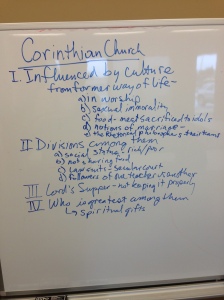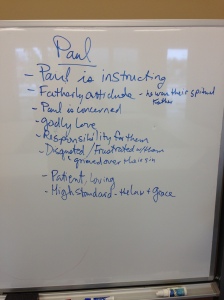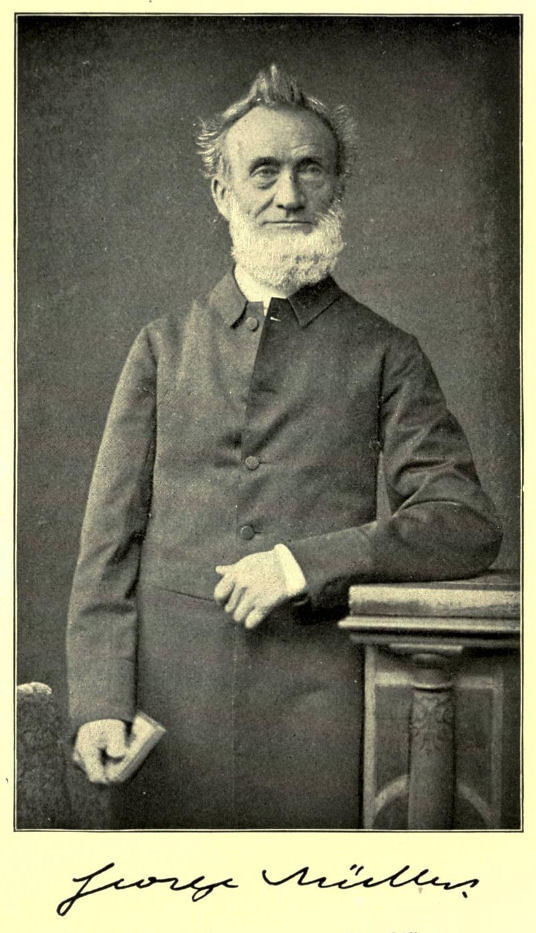Our text for today is 1 Corinthians 13:1-3
“If I speak in the tongues of men and of angels, but have not love, I am a noisy gong or a clanging cymbal. 2 And if I have prophetic powers, and understand all mysteries and all knowledge, and if I have all faith, so as to remove mountains, but have not love, I am nothing. 3 If I give away all I have, and if I deliver up my body to be burned, but have not love, I gain nothing.”
Introduction – What do we know at this point?
A. To this point, we have learned a great deal about Corinth. Let’s begin with an inventory of what we know about the city, and the people of the church at Corinth. Make a list of the cultural issues Paul addresses in this letter to this point.
Our notes:
The Church at Corinth had benefitted greatly from Paul’s ministry for the 18+/- months he had spent with them. He had taught them much, and they were, as Paul wrote, “in every way … enriched in Him in all speech and all knowledge” (1:5). However, the church was beset with many challenges, sins, and divisions. Here is what we discovered as we worked in small groups, re-reading chapters 1-12, looking for the things we could learn about the church at Corinth.

B. Based on what we know about Corinth, why do you think Paul now writes to the church of Corinth about love? Why does he now proceed to define love as recorded in a whole chapter?
C. In your own words, define love.
We made this list: selfless, sacrificial, unconditional, an action (a verb), genuine care, meek, compassionate, palpable / tangible demonstration of care
We asked Siri, who quoted the Oxford as follows:
love [lʌv] noun
- 1 That state of feeling with regard to a person which manifests itself in concern for the person’s welfare, pleasure in his or her presence, and often also desire for his or her approval; deep affection, strong emotional attachment. (Foll. by of, for, to, towards .) OE.
- b An instance of affection (now rare). Formerly also, an act of kindness. OE.
- c Affectionate greetings (freq. as a closing formula in letters). m17.
Shakes. L.L.L. My love to thee is sound, sans crack or flaw. Juliette Huxley I secretly adored my father and longed to be able to show him my love. B. Gilroy The grandchildren’s clothes washed and ironed with love.c Scott FitzgeraldI’d been writing letters…and signing them: ‘Love, Nick.’
brotherly love, mother love, platonic love, romantic love, etc.
- 2 In Christian use: the benevolence and affection of God; the affectionate devotion due to God; regard and consideration prompted by a sense of a common relationship to God. OE.
AV 1 John 4:16 God is loue, and hee that dwelleth in loue, dwelleth in God.
- 3 Strong predilection, liking, or fondness for, or devotion to something. Foll. by of, for, (arch.) to. OE.
C. A. Lindbergh The army Air Corps is built up of men who fly for the love of flying. E. Feinstein Marina’s interest in gypsies was part of her love of everything exotic.
- 4 That feeling of attachment which is based on sexual qualities; sexual passion combined with liking and concern for the other. OE.
- b An instance of being in love; in pl., amatory relations, love affairs. l16.
Milton Haile wedded Love, mysterious Law, true sourse Of human ofspring. S. Johnson It is commonly a weak man who marries for love. K. Waterhouse Love was a taboo subject in our country.b Swift The Colonel was cross’d in his first Love.
- 5
- a (L-.) The personification of sexual affection, usu. masculine and more or less identified with Eros, Amor, or Cupid of classic mythology. ME.
- b A cupid; a god of love; a figure or representation of a god of love. l16.
b W. M. Praed Wher’er her step in beauty moves, Around her fly a thousand loves.
- 6 A beloved person; esp. one’s sweetheart. Freq. (with or without possess.) as a form of intimate or (colloq.) friendly address. ME.
- b† An illicit or clandestine lover. lME–e17.
- c gen. An object of love; a person who or thing which is loved. m18.
- d A charming or delightful person or thing. colloq. e19.
C. Marlowe Liue with me and be my Loue. Shakes. Merch. V. Whether Bassanio had not once a love. Alan Bennett Wash your hands, love, we’re all ready.c D. Wigoder He introduced me to one of my greatest loves—classical music.J. Rule You were the great love of her life.d J. Austen The garden is quite a love. P. Carey Be a love and get back into your own bed.
- 7 Amorous sexual activity, sexual intercourse. Now chiefly in make love , lovemaking below. lME.
- 8† A game of chance: = mora noun2. l16–e18.
- 9† A material worn in mourning; a border of this. e17–e19.
- 10 In various games, esp. tennis, squash, etc.: no score, nil, nothing. m18.
love [lʌv] verb
- 1 verb trans. Feel love for (a person, a thing personified); be very fond of, hold dear. OE.
- b spec. Feel sexual love for; be in love with. OE.
- c verb intrans. Feel love; esp. be in love. ME.
J. A. Froude A man who loved England well, but who loved Rome better. J. Gardam He had loved the king and had ridden…from the fells to Westminster for a coronation. J. Nagenda Your old mother who loves you with all her heart.b Shakes. Oth. I never knew woman love man so.c Shakes. Jul. Caes. Love, and be friends.Tennyson ‘Tis better to have loved and lost, Than never to have loved at all.
I must love you and leave you colloq.: a formula of departure.
Lord love you, Lord love me, Lord love a duck, etc. interjections expr. surprise, emphasis, etc.
loved one a person beloved; esp. in pl., one’s family or relations.
love paramour : see paramour adverb 2.
b love to pieces : see piece noun.
- 2 verb trans.
- a Be strongly attached to (a thing), be unwilling to part with or allow to perish(life, honour, etc.). OE.
- b Take great pleasure in, be devoted or addicted to; colloq. like very much. Foll. by simple obj. to do, doing a person or thing to do . ME.
- c Take pleasure in the existence of; admire greatly. ME.
a Marvell As you loue your own affairs…be pleased…to let me know your minds.b H. GlasseSome love a pig brought whole to table. P. V. White He loved her to need him. Merle Collins The Christmas plays she also loved. M. Milner I have always loved drawing goats. San Francisco Chronicle He loves to bat, especially if he can put the ball out of the park.c Burke I love firm government.
- 3 verb trans. Of a plant or (less usually) an animal: have a tendency to thrive in (a certain kind of situation). lME.
B. Taylor The violet loves a sunny bank.
- 4 verb trans. Embrace or caress affectionately. Freq. foll. by up. colloq. l19.
K. S. Prichard Why don’t you give her a hug…love her up a bit? B. Holiday That dog…began lapping me and loving me like crazy.
Authentic Love Defined (1 John 4:16)
“So we have come to know and to believe the love that God has for us. God is love, and whoever abides in love abides in God, and God abides in him.”
- What is John’s definition of love in this verse?
- What is the implication of this verse regarding Christian character?
- Why do you think that we find it hard to be loving?
ἀγάπη (agape) = self-sacrificing service, putting others above oneself, humble, leads to action,
Authentic Love Commanded by Jesus (John 13:34-35)
“A new commandment I give to you, that you love one another: just as I have loved you, you also are to love one another. 35 By this all people will know that you are my disciples, if you have love for one another.”
A. What is the new commandment Jesus gives? To whom does He give this commandment?
B. What will be the result of keeping this commandment? Why is that important?
C. What implications for the church do we find in this new commandment?
D. How can we keep this commandment?
What do we know about agape at this juncture?
- we are under a New Covenant in Christ based on grace and love, not the Old based on the Law – we have the Holy Spirit in us, so we are able to exercise agape love!
- the highest calling in all of life
- the moment I take my eyes of Christ, I am not abiding
- God-centered, and supreme
- forgiveness
- If you don’t forgive others, I won’t forgive you – Mark 11
- It seems simple, yet it is huge! Agape is above and beyond everything else!
- This is the heart of God for us as His children.
- The purpose of our church is to demonstrate this love! Cf John 17 – Jesus’s prayer for His church
- God-glorifying
- When I fall short, I need to remember to repent and return to loving that way
- Agape love is only produced under the New Covenant!
- Agape is a conscience choice to follow the way of the cross
- Worship!
Part 3
Authentic Love Commanded by Paul (Romans 13:8-9)
“Owe no one anything, except to love each other, for the one who loves another has fulfilled the law. 9 For the commandments, “You shall not commit adultery, You shall not murder, You shall not steal, You shall not covet,” and any other commandment, are summed up in this word: “You shall love your neighbor as yourself.” 10 Love does no wrong to a neighbor; therefore love is the fulfilling of the law.”
A. What do we learn from Paul in these verses? Summarize the points he makes in your own words.
Authentic Love Defined in the Key NT Scriptures
A. What do we learn about love from the following verses?
John 15:9 As the Father has loved me, so have I loved you. Abide in my love.
Rom 5:5 … God’s love has been poured into our hearts through the Holy Spirit who has been given to us
1 Corinthians 16:14 Let all that you do be done in love.
1 Corinthians 14:1 Pursue love, and earnestly desire the spiritual gifts, especially that you may prophesy.
Philippians 1:9-11 And it is my prayer that your love may abound more and more, with knowledge and all discernment, 10 so that you may approve what is excellent, and so be pure and blameless for the day of Christ, 11 filled with the fruit of righteousness that comes through Jesus Christ, to the glory and praise of God.
Philippians 2:1-2 So if there is any encouragement in Christ, any comfort from love, any participation in the Spirit, any affection and sympathy, 2 complete my joy by being of the same mind, having the same love, being in full accord and of one mind.
Col 3:14 And above all these put on love, which binds everything together in perfect harmony.
1 Thessalonians 3:12 …may the Lord make you increase and abound in love for one another and for all, as we do for you…
1 Thessalonians 4:9 Now concerning brotherly love you have no need for anyone to write to you, for you yourselves have been taught by God to love one another.
Hebrews 10:24 And let us consider how to stir up one another to love and good works…
1 Peter 4:8 Above all, keep loving one another earnestly, since love covers a multitude of sins.
Authentic Love Summarized in 5 Key Points
A. Love is commanded.
B. Love is already possessed by Christians.
C. Love is the norm of Christian living.
D. Love is the work of the Holy Spirit.
E. Love must be practiced to be genuine.














